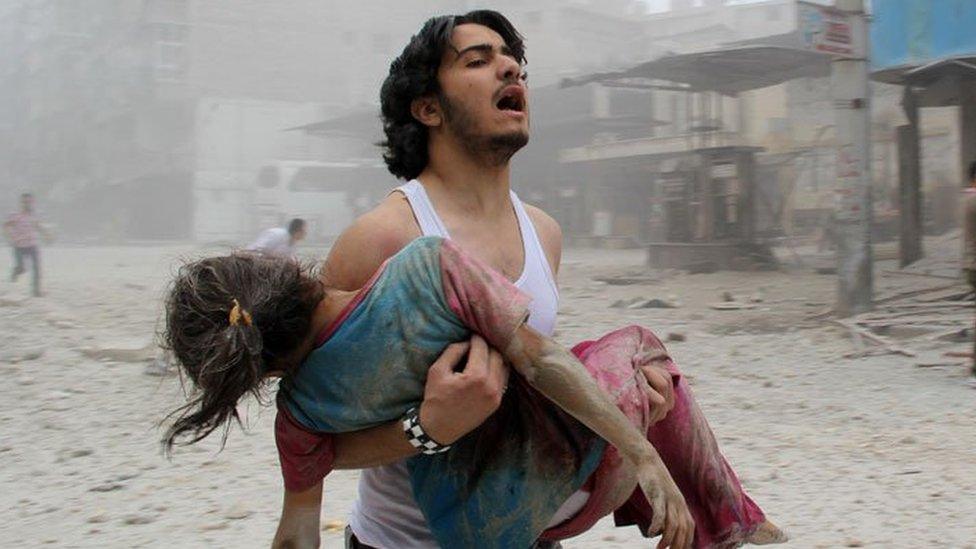Anti-Syrian hostility in Lebanon spawns social media backlash
- Published
Lebanese activist: "If my country can't be self-sufficient, the fault lies with the authorities. It shouldn't blame its failures on the refugees"
"Once upon a time one Lebanese called for racism while one thousand said no to racism". This is one of many slogans posted online as part of a campaign to fight alleged discrimination and racism against Syrian refugees in Lebanon.
According to the UN, since 2011 more than one million Syrian refugees have fled the conflict in Syria to neighbouring Lebanon, a country of about four million people.
The refugees, seen by some Lebanese as a serious threat to the country's economy, social coherence and infrastructure, have fuelled a huge debate centred around the impact refugees may have on the country.
One of the incidents that triggered the debate involved a recently painted graffiti that read: "To every despicable Syrian, leave". Activists crossed out the word "Syrian" and instead wrote "racist".
Human rights campaigners and civil society organisations have launched an online awareness campaign in support of the refugees, using social networking sites to spread the word and to reach large numbers of Lebanese.
The Facebook page The Campaign in Support of Syrians Facing Racism, external was one of the first to tackle the issue. Created only a week ago, the page says it "rejects all violence towards Syrians [in Lebanon], racist political rhetoric and the associated media hype".
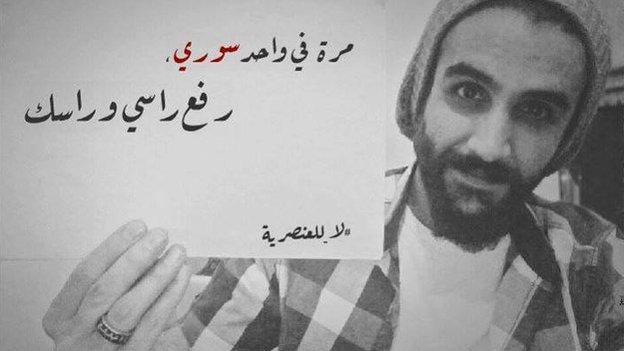
Salam Kabboul: "I once met a Syrian who made us both proud"
The page, which already has more than 10,000 "Likes", attracts a wide spectrum of followers. Many show solidarity with the Syrian refugees in Lebanon while others argue that the refugees pose a threat to Lebanon's economy.
Activists have posted photos of themselves holding placards with anti-discrimination slogans written on them. One, Salam Kabboul, external, wrote: "I once met a Syrian who made us both proud."
Another, Nazeer Rida, external, said: "Every Syrian brother is welcome. The racist is not welcome. No to racism."
Nina Abou Sabha, external posted a photo of a placard saying: "He didn't escape death to die of humiliation."
In contrast, many comments on the Facebook page argue that rent has gone up and salaries plummeted because the refugees accept lower pay than the Lebanese.
Some Facebook users also blame refugees for an increase in crime and sexual harassment.
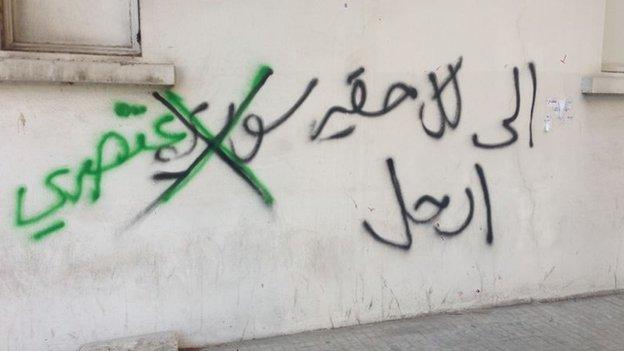
"To every despicable Syrian, leave" - activists crossed out the word "Syrian" and instead wrote "racist"
Farah, one of the organisers and founders of The Campaign in Support of Syrians Facing Racism, said the "group was created to provide a platform for Lebanese people to express themselves and to show solidarity with the refugees".
"We are telling the refugees that they are not alone and that they are welcome in Lebanon," Farah added.
Lebanese local councils have now started to restrict the movement of refugees and impose a curfew from 21:00 to 06:00 every day.
A few months ago, Al-Jazeera TV interviewed the mayor of a Christian-dominated suburb in Beirut who said that Syrians were issued with special cards.
"They must finish all their work during the day and return to their residence at night," the mayor said.
Politicians admit the conditions are not ideal, but believe that they are necessary under the circumstances.
Earlier in March, former minister Nicolas Maurice Sehnaoui said at a news conference that Syrian refugees should be "shipped" back to Syria. The statement triggered more anger among activists who have now included Sehnaoui in their anti-discrimination slogans.
On Twitter, Lebanese users have started using the Arabic hashtag #No_to_Racism to raise awareness about discrimination. The hashtag is rapidly spreading.
More than 70 people have posted photos of themselves holding placards with messages addressed to "racists in Lebanon" calling on them to oppose discrimination against the Syrian refugees and to show solidarity with them.
The campaign has been joined by journalists and intellectuals and has received backing from media outlets.
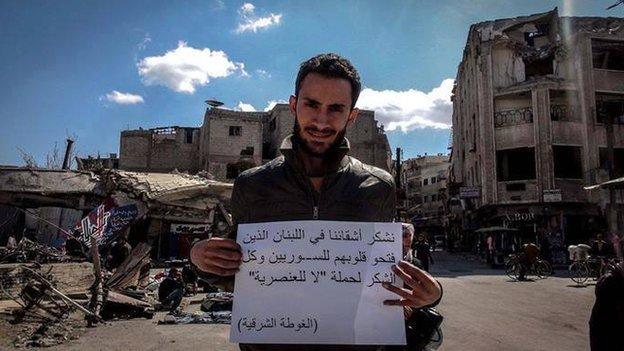
A Syrian in Damascus thanking Lebanese for the No to Racism Campaign
A new phenomenon
The issue of discrimination in Lebanon is not new. A year ago, the local "Anti Racism Movement" produced a short video, external in which a number of activists stood "against this insane, inhumane, racist, hate-inciting discourse that is being spread on traditional and new media".
The activists apologised "for all the damage done [against the refugees]" and added that people who discriminate against refugees "did not represent the Lebanese people".
The video resurfaced on the internet in March this year following the creation of the Facebook page. It is gaining momentum and is widely shared online.
Tarek, a human rights activist in Lebanon, said: "There is so much that needs to be done to raise awareness, and spreading the word on social media is a good start". "More [Facebook and Twitter] followers mean more exposure," he said.
Whether the awareness will change the tone and general attitude towards the refugees remains unknown.
BBC Monitoring, external reports and analyses news from TV, radio, web and print media around the world. For more reports from BBC Monitoring, click here
- Published3 April 2014
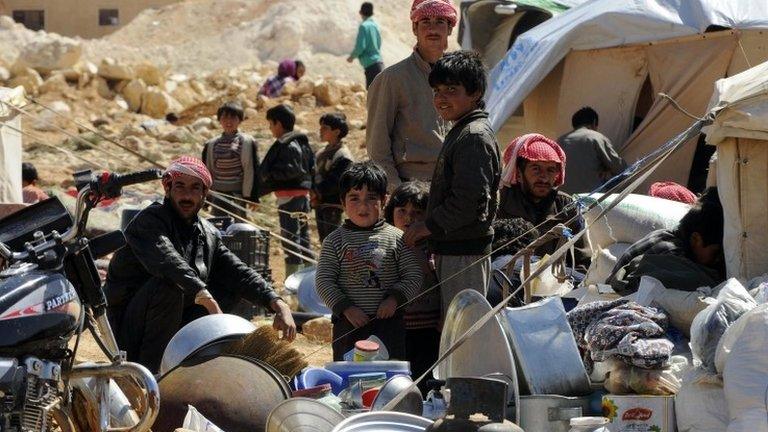
- Published11 March 2016
